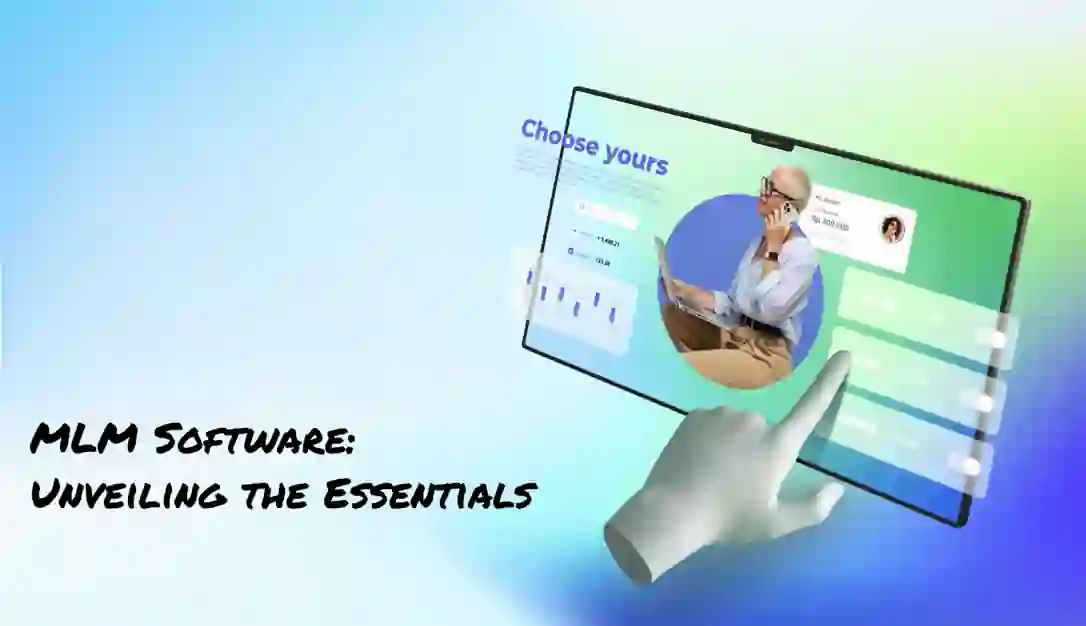

The network marketing industry is changing faster than ever. As we head into 2026, relying on outdated tools isn’t just inefficient—it’s a recipe for business failure. To build a sustainable, rapidly growing organization, your network marketing business requires a technological backbone that is secure, fast, and intelligent.
This article unveils the essential features that define top-tier MLM software in 2026, designed to help you stay ahead of the competition and keep your distributors engaged.
Gone are the days of waiting for end-of-month reports. Modern MLM software must provide instantaneous, data-driven insights. An AI-powered dashboard helps administrators and distributors identify top performers, track trending products, and predict market fluctuations before they happen.
Transparency and speed are non-negotiable. Your software must handle complex compensation plans (Binary, Unilevel, Hybrid) with zero errors. Furthermore, in 2026, distributors expect instant payouts via crypto, digital wallets, or direct bank transfers, fostering immense trust in your brand.
Your business operates on the go. A robust mobile application is essential for enabling distributors to onboard new members, track sales, and manage their genealogy tree directly from their smartphones. This ensures maximum productivity regardless of location.
MLM is no longer just about recruitment; it is deeply tied to product sales. The software must integrate seamlessly with e-commerce platforms, allowing for secure checkouts, inventory management, and support for cryptocurrency transactions to facilitate global business expansion.
Managing large networks manually is impossible. The software must automatically visualize and manage genealogy structures, ensuring accurate spillover placement according to your specific compensation plan rules, saving countless hours for administrators.
Empower your distributors with pre-built marketing campaigns. The software should include automated email sequences, social media scheduling tools, and customizable replicated websites to help distributors acquire customers faster without needing technical skills.
With increasing data privacy regulations, your software must be GDPR and CCPA compliant. Utilize high-level encryption for data protection and fraud detection algorithms to prevent fraudulent activities within the network.
Investing in the right MLM software in 2026 is about choosing a platform that scales with your ambition. By focusing on automation, security, and distributor experience, you set your business up for long-term success. Stay updated, stay secure, and keep growing! 🚀
1. Why is AI important in 2026 MLM software?
AI provides predictive analytics to help businesses understand trends, optimize commissions, and prevent network churn.
2. Can MLM software handle cryptocurrency payments?
Yes, modern software integrates crypto gateways for faster, borderless transactions.
3. What is a replicated website in MLM?
It is a personalized website provided to distributors to promote products and recruit new members, automatically tracking sales to them.
4. How secure is user data in these systems?
Top-tier software uses end-to-end encryption and complies with international data privacy laws like GDPR.
5. What is the role of a mobile app in MLM?
It allows distributors to manage their business, track earnings, and train their team from anywhere.
6. Does the software automatically calculate commissions?
Yes, the commission engine automates complex calculations based on the compensation plan rules.
7. How does spillover management work?
The software automatically places new members in the downline based on predefined rules to balance the network tree.
8. Is the software customizable?
Yes, robust MLM platforms allow customization to fit specific compensation plans and business branding.
9. Can the software handle global currencies?
Absolutely, it supports multi-currency transactions and automated currency conversion.
10. How often should MLM software be updated?
It should be updated continuously to ensure security patches are applied and new features are integrated.